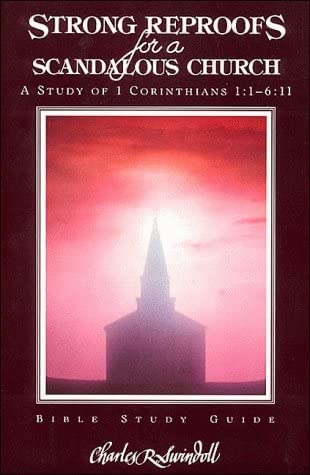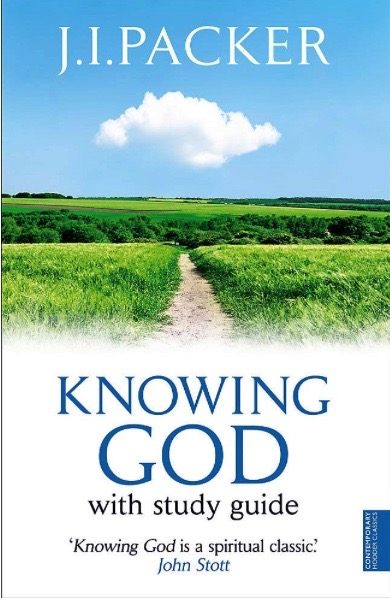My first parish as a young enthusiastic priest was St John’s, Stoke, in Guildford, Surrey. It is situated next door to Guildford College. In my time there as Rector, we held occasional events for students and faculty. Previously I had spent four years working as a student pastor so when the chaplaincy of the college fell vacant I asked my Bishop whether the two posts could be combined. We heard nothing for months. Eventually when I pressed the Archdeacon, I was told that it was considered inappropriate for an evangelical to be appointed as the chaplain to an academic institution. Then when I proposed undertaking a part-time post graduate degree I was asked by the Director of Training, rather cynically, was I going to buy it from America? That was all the motivation I needed to pursue a Masters from Oxford and then eventually a PhD.
I can therefore relate to how the Apostle Paul must have felt when he was mocked by the Christians in Corinth for his lack of eloquence or oratory skills. Let me read to you from John Stott’s book “Calling Christian Leaders” (IVP)

”As Hudson Taylor affirmed in the nineteenth century, ‘all God’s giants have been weak people’. This was in contrast to the false teachers, whom Paul dubbed ‘super apostles’ (2 Cor. 11:5). They were proud and self-confident, and boasted of their wisdom, authority and power… ‘Rhetoric was a systematic, academic discipline taught and practised throughout the Graeco-Roman world. In fact, in the first century AD ‘rhetoric became the primary discipline in Roman higher education’. In public debates, in the law courts and at funerals… rhetoric… was tremendously popular as a ‘form of public entertainment’. Gradually it became an end in itself… The goal was applause, the motive vanity and the casualty truth…”
This is why the Christians in Corinth looked down on Paul. They had assimilated to the cultural norms of the day. And that is the temptation in every generation. Look at what is being discussed at your Church Synod and figure out how well we are resisting that temptation today. This is the context for Paul’s reproof for a scandalous church (the title is taken from Chuck Swindoll’s commentary on 1 Corinthians). Let us now observe his method, his motivation and his message.
Paul’s Methods were Humanly Weak
“When I came to you, I did not come with eloquence or human wisdom as I proclaimed to you the testimony about God… I came to you in weakness with great fear and trembling.” (1 Corinthians 2:1-3)
Rather than deny their criticisms, Paul readily acknowledges his weakness. In his second letter Paul even quotes them as saying “’His letters are weighty and forceful, but in person he is unimpressive and his speaking amounts to nothing.” (2 Corinthians 10:10). They said Paul was nothing much to look at or indeed to listen to. Rather than give excuses, Paul actually boasted of his weakness.
“in order to keep me from becoming conceited, I was given a thorn in my flesh, a messenger of Satan, to torment me. Three times I pleaded with the Lord to take it away from me. But he said to me, “My grace is sufficient for you, for my power is made perfect in weakness.” Therefore I will boast all the more gladly about my weaknesses, so that Christ’s power may rest on me. That is why, for Christ’s sake, I delight in weaknesses, in insults, in hardships, in persecutions, in difficulties. For when I am weak, then I am strong.” (2 Corinthians 12:7-10)
Charles Spurgeon is a good example of the principle of ‘power in weakness’. As a young man, Spurgeon sometimes stuttered.
“All his life he struggled with depression. Later he had regular attacks of gout, and occasionally was in such pain while preaching that he had to put one knee on a chair and cling to the pulpit rail. Usually, he said, he felt ‘terribly sick before preaching, as if he were crossing the English Channel’. And in addition to these physical symptoms, he suffered slanderous attacks from the press. He was only nineteen when he came to London. The Saturday Review called him ‘a coarse, stupid, irrational bigot’ and later an ignorant, conceited fanatic. Many cartoons and caricatures made fun of him. But he persevered, and astonishing power attended his ministry” (John Stott)
That has been so very true of countless others since. As a young pastor I was taught a very simple principle, “If your knees are knocking, kneel on them” and “if you don’t feel sick in the stomach as you stand up to preach, find another vocation”. Paul was not afraid to admit when he was afraid. Are you able to do that? Paul’s methods were humanly weak.
Paul’s Motivation was to Make Jesus Known
“For I resolved to know nothing while I was with you except Jesus Christ and him crucified… My message and my preaching were not with wise and persuasive words, but with a demonstration of the Spirit’s power, so that your faith might not rest on human wisdom, but on God’s power.” (1 Corinthians 2:3-5)
Why didn’t Paul take elocution lessons? Why didn’t he begin his sermons with an entertaining joke or try and wow his audience?
Because Paul wanted to point people to Jesus not draw attention to himself. Paul knew that only God can open blind eyes. Only Christ crucified can take away our sin. Only God’s Spirit can raise the dead. What is your motivation in life? To impress or to implore? To draw attention to yourself or to point people to Jesus? Paul’s methods were humanly weak. Paul’s motivation was to know Jesus and make Jesus known.
Paul’s Message Was God’s Wisdom for Living
“We declare God’s wisdom, a mystery that has been hidden and that God destined for our glory before time began… “What no eye has seen, what no ear has heard, and what no human mind has conceived”— the things God has prepared for those who love him—10 these are the things God has revealed to us by his Spirit.” (1 Corinthians 2:7-10)
Three things we can observe about this wisdom:
It is Wisdom that is Personal
It is personal in the sense that it is “God’s wisdom” for you and me. Paul calls it a “mystery” (2:7). The word ‘mystery’ simply means secret. It is knowledge that remains a secret until God reveals himself and then all is clear. You won’t find this wisdom in books or with an internet search engine or on Wikipedia. It is God’s wisdom revealed. Although a secret wisdom it is not difficult to find. The apostle James explains:
“If any of you lacks wisdom, you should ask God, who gives generously to all without finding fault, and it will be given to you.” (James 1:5)
It is a Wisdom that is Prepared
A wisdom that “God has prepared for those who love him.” (2:9). It is prepared in the sense of God’s foreknowledge of what we need to know. It is prepared because God wants us to become wise and grow to maturity. God’s purpose is to make us mature. To make wise decisions that glorify Him, that fulfil his will, that enable us to follow in the footsteps of Jesus.
It is a Wisdom that is Purposeful
This wisdom is purposeful in that “God destined for our glory” (2:7). That word ‘glory’ speaks of the future that God has planned for your life and mine. It is future orientated. We can so easily become trapped by guilt from the past or fear of the future.
God gives us wisdom so that we can break free from our past, enjoy him in our present and trust him with our future. Discovering God’s purpose for your life is the most important thing you can ever do. And it seems an awful lot of people agree. You know the most popular non-fiction book in history?
The Purpose Driven Life: What on earth am I hear for? by Rick Warren.
What is God’s purpose? It is fivefold:
- You were planned for God’s pleasure – to know and love him;
- You were formed for God’s family – to find a home and family;
- You were created to become like Christ – with love, joy, peace,
- You were shaped for serving God – with talents, skills & passion
- You were made for a mission – to introduce other people to God’s five purposes for them also.
I highly recommend this book. On my website you will find a whole sermon series based on these five purposes.
Beside the Bible, the other book that has probably helped me the most to grow as a Christian is Jim Packer’s book, Knowing God. I’ll let Packer summarise God’s purposes for us.

“Do I, as a Christian, understand myself? Do I know my own real identity? My own real destiny? I am a child of God. God is my Father; heaven is my home; every day is one day nearer. My Savior is my brother; every Christian is my brother too. Say it over and over to yourself first thing in the morning, last thing at night, as you wait for the bus, any time when your mind is free, and ask that you may be enabled to live as one who knows it is all utterly and completely true. For this is the Christian’s secret of — a happy life? — yes, certainly, but we have something both higher and profounder to say. This is the Christian’s secret of a Christian life, and of a God-honoring life… May this secret become fully yours, and fully mine.” (pp.258-260)
We have discovered that God’s wisdom revealed in Jesus Christ is personal, its prepared and it is purposeful. The Westminster Shorter Catechism sums up God’s purposes in the very first question, “What is the chief end of man? The chief end of man is to glorify God and to enjoy him forever.” May you enjoy him today and you discover his perfect will for your life and in response glorify him in all you say, think and do. Amen.
If you have found this sermon helpful, please consider making a donation to Peacemaker Trust so that we can continue to offer these Bible expositions and study resources each week.
Recommended Reading
J.I. Packer, Knowing God (Hodder)
David Prior, The Message of 1 Corinthians (IVP)
John Stott, Calling Christian Leaders (IVP)
Charles Swindoll, Strong Reproofs for a Scandalous Church (Word)
Rick Warren, The Purpose Driven Life (Zondervan)
Questions for personal reflection or group bible study
- What is the difference between knowledge and wisdom?
- What is the link between the cross and the Spirit? (v. 2-4)
- What might be ‘the wisdom of this age’? (v. 6)
- Who might be the ‘rulers of this age’? (v. 6, 8)
- Why is God’s wisdom hidden to many people? (v. 7)
- How can we discover God’s wisdom? (James 1:5)
- How do I discover my purpose in life? (v. 6-7, 9-10)
- What does it mean to have the ‘mind of Christ’? (v. 16)
BTW the title of this sermon is taken from Charles Swindoll’s helpful Bible study guide to 1 Corinthians.
An Invitation
If you have been blessed by this message and would like to help me provide more, please consider making a contribution to our charity, Peacemaker Trust. You can do so here: https://peacemakers.ngo/give/
“The elders who direct the affairs of the church well are worthy of double honor, especially those whose work is preaching and teaching. For Scripture says, “Do not muzzle an ox while it is treading out the grain,” and “The worker deserves his wages.” (1 Timothy 5:17-18)
